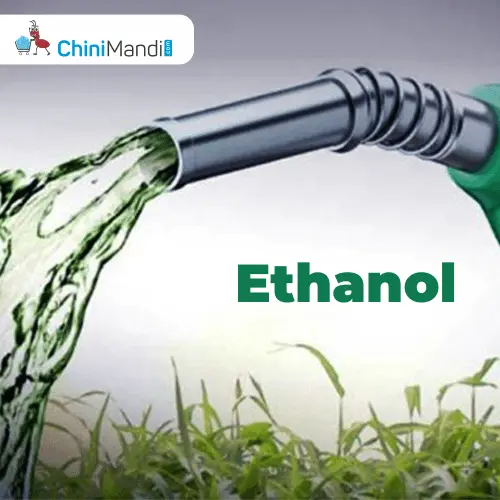New Delhi: The lifting of restrictions on ethanol production from B-heavy and C-heavy molasses and sugarcane juice will normalize ethanol production volume for sugar companies, asserted Mumbai-headquartered financial advisory firm DAM Capital.
On Thursday, the food department lifted the previously imposed restriction on ethanol production from sugarcane juice, sugar syrup, B-Heavy molasses, and C-Heavy molasses. The restrictions on ethanol production were imposed in December 2023, purportedly given rising sugar prices before the Lok Sabha election.
“We believe the clarity of ethanol blending and full utilisation of distillery capacity by sugar mills would pave the way for strong earnings growth from Q3FY25 onwards,” said DAM Capital, asserting that it was positive on sugar industry.
“This would result in sector re-rating,” it said, “Hence, we are assigning higher earnings multiple for the companies in our coverage universe.”
The food department, in coordination with the petroleum and natural gas ministry, periodically reviews the diversion of sugar to ethanol production vis-a-vis the production of sugar in the country so that availability of sugar for domestic consumption is ensured throughout the year.
DAM Capital said sugar inventory levels in the country is expected to be above 8 million tonnes by October, which is more than the minimum requirement of 5 million tonne. Further, gross sugar production is expected to remain at 32 million tonne, higher than consumption of 29 million tonne.
This it believes would result in the availability of more than 5 million of sugar inventory for the production of ethanol from B-heavy and sugarcane juice route.
“We estimate 4-5 mt of equivalent of sugar diversion towards ethanol, which would be sufficient for 4.5 to 5.0 bn liters of ethanol production in the country,” said DAM Capital.
The other key decision the food department took yesterday was to allow the participation of distilleries in the FCI rice auction.
Ethanol distilleries are allowed to participate in the rice auction of FCI, subject to certain compliances. A maximum of 23 lakh tonne rice will be allowed for lifting to ethanol distilleries, the food department said.
“The distillery would be allowed to participate in e-auction and lift the rice as per final auction rate of rice every week. These moves would pave the way for resumption of ethanol blending program in 2024-25 season,” DAM Capital said.
The government’s ambitious target of attaining 20 per cent ethanol-blended petrol by 2024-25 and 30 per cent by 2029-30 is likely to get a fresh boost because of the latest policy intervention.
Of the total ethanol produced in the country, ethanol from cane juice notably accounts for 25-30 per cent while that from B heavy molasses accounts for over 60-65 per cent. Ethanol from C-heavy molasses and grains accounts for the rest.
E20 blending in petrol was introduced by the Centre to reduce the country’s oil import cost, energy security, lower carbon emissions and for better air quality.
The government has advanced the target of E20 fuel from 2030 to 2025.
Notably, at the COP26 summit in Glasgow in 2021, Prime Minister Narendra Modi committed to an ambitious five-part “Panchamrit” pledge, including reaching 500 GW of non-fossil electricity capacity, generating half of all energy requirements from renewables, and reducing emissions by 1 billion metric tonnes by 2030. India also aims to reduce the emissions intensity of GDP by 45 per cent. Finally, India commits to net-zero emissions by 2070. (ANI)
Continue reading Chinimandi.com for more news about the Ethanol Industry












